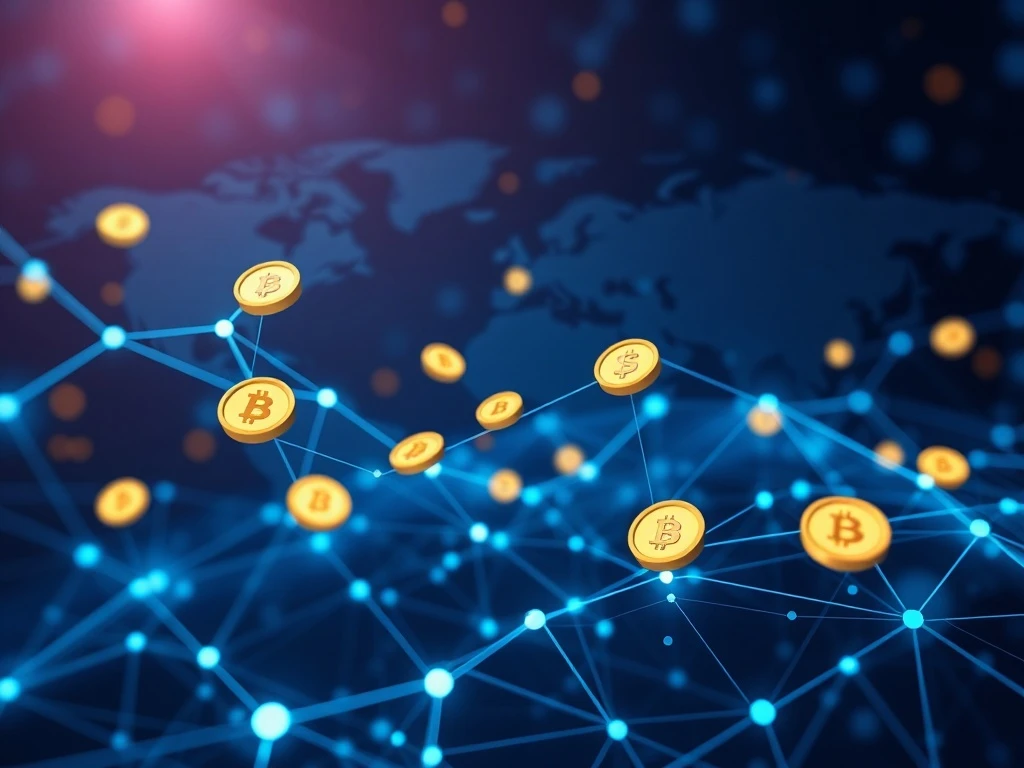The digital finance landscape is experiencing a seismic shift as programmable money attracts massive investor confidence, with two major startups securing nearly $100 million in fresh funding. This development signals growing mainstream adoption of blockchain-based financial solutions that automate and customize monetary transactions.
Major Funding Rounds for Programmable Money Infrastructure
Venture capital firms are aggressively backing programmable money infrastructure, demonstrating strong belief in this emerging technology. Switzerland-based M0 announced a $40 million Series B round led by Polychain Capital and Ribbit Capital. Simultaneously, US startup Rain secured $58 million in Series B funding from Sapphire Ventures, Dragonfly, and Galaxy Ventures. These substantial investments arrived exactly when the stablecoin market capitalization reached a record $280 billion.
How Programmable Money Differs from Traditional Digital Currency
Programmable money represents a significant evolution beyond conventional digital payments. Unlike standard stablecoins that function primarily as payment tokens, programmable money incorporates built-in rules that automatically govern its usage. Key characteristics include:
- Automated compliance through smart contract enforcement
- Customizable spending restrictions based on issuer requirements
- Real-time fund tracking and conditional disbursement
- Multi-jurisdictional functionality for global operations
Diverse Applications of Programmable Money Technology
M0 and Rain are pursuing different but complementary approaches to programmable money implementation. M0 focuses on enabling developers to create application-specific stablecoins with embedded rules for liquidity and access. Their partnership with Playtron has already produced a specialized “Game dollar” integrated into handheld gaming systems. Meanwhile, Rain concentrates on fund flow management, facilitating real-time compliant payroll processing across over 100 jurisdictions through their Toku partnership.
Global Government Adoption and Pilot Programs
Governments worldwide are actively testing programmable money applications through central bank digital currency (CBDC) initiatives. Kazakhstan launched a pioneering pilot program using its digital tenge CBDC to fund infrastructure projects. The programmable tokens were designed to release payments only upon achievement of specific milestones, ensuring transparency and accountability. Similarly, India’s digital rupee pilot has expanded to include programmability features aimed at improving financial accessibility and tailored payment flows.
Private Sector Innovation and Expansion
Private companies are driving remarkable innovation in programmable money applications. Circle recently introduced programmable wallets and gas-station functionality on Solana, enabling USDC transactions to autonomously trigger smart contracts. TradeOS debuted a programmable settlement layer for global commerce that ties stablecoin payouts to verified real-world outcomes. These developments demonstrate how programmable money is evolving beyond theoretical concepts into practical financial solutions.
Addressing Concerns and Criticism
Despite the exciting potential, programmable money faces legitimate concerns regarding financial privacy and control. Critics like Susie Violet Ward of Bitcoin Policy UK warn that CBDCs could lead to the “weaponization of money.” However, proponents argue that properly designed systems can balance innovation with consumer protection, creating more efficient and transparent financial ecosystems.
Future Outlook for Programmable Money
The substantial funding injections into M0 and Rain indicate strong market confidence in programmable money’s future. As blockchain infrastructure matures and regulatory frameworks develop, programmable money is poised to transform numerous industries. From automated payroll systems to conditional aid distribution, the applications are virtually limitless. The convergence of government initiatives and private innovation suggests we are witnessing the early stages of a fundamental shift in how value transfers occur globally.
Frequently Asked Questions
What exactly is programmable money?
Programmable money refers to digital currency with built-in rules that automatically govern how it can be used, when it can be spent, and where it can be transferred, all enforced through blockchain technology and smart contracts.
How does programmable money differ from regular stablecoins?
While all stablecoins operate on blockchains, programmable money specifically incorporates conditional logic and automated enforcement mechanisms that control fund usage beyond simple payment functionality.
What are the main benefits of programmable money?
Key benefits include automated compliance, reduced administrative overhead, enhanced transparency, conditional disbursement capabilities, and real-time fund tracking across multiple jurisdictions.
Are there privacy concerns with programmable money?
Yes, critics express concerns about potential financial surveillance and control issues. However, developers are working on solutions that balance programmability with privacy protections.
Which industries benefit most from programmable money?
Industries including payroll processing, international trade, government subsidies, gaming economies, and conditional aid distribution stand to benefit significantly from programmable money applications.
When will programmable money become mainstream?
While already operational in pilot programs and specific applications, widespread mainstream adoption will likely occur over the next 2-5 years as regulatory frameworks mature and infrastructure scales.








